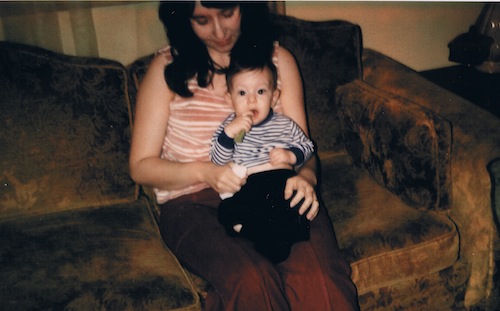Mom’s pencil
One of my earliest memories—one’s that just gauzy enough to prove its age, but just clear enough to be truer than most—is a pencil in my mom’s hand. It’s jitting and jotting across a piece of white paper in her lap. She works with efficiency, mindful of the list of things she has to get done before the day’s end. But she also works precisely, because there is a way the resulting sketch must look.
I’m watching from the spot beside her, amazed that the same hand that washes my hair, makes my food, and guides me across the road is the hand that’s deftly sketching out a picture of Santa Claus. It’s perfect, and my mom made it.
My mom has been many things. When I think of her, I think of her starting out as a teenager working in a diner. I think of her as a mother to two demanding boys. I think of her many, many years helping people she loved at the end of their lives. For most people who know her, Mom’s legacy will be one of service, of caretaking, of unrecognized sainthood. The lives she has touched with her selflessness and grace are without number. It’s a fine legacy to be sure.
But, even if you know my mom well, you may not know what I know. You may not know what I learned sitting at her hip that day in Springfield, Missouri.
See, Mom didn’t just sketch out pictures of Santa Claus because her kid wanted her to. She did it because it was who she was. A need hid in a place in her brain she didn’t let many people see. Over the years, that need manifested itself in many ways.
In our galley kitchen, one not big enough for three people, Mom made wedding cakes—beautiful, sought-after wedding cakes—for countless people. On other days, all the men of the family came to her to cut their hair. She did it better than anybody they could find, and she did it for free. Mom would stage elaborate meals and cook the kind of food she knew people loved. And when she finally took a rare moment to relax, she could spin a yarn like nobody you know. Where most people would just tell you what happened, Mom would tell it with style, with a punch line, with a kicker at the end that made you happy you listened for another couple of minutes.
See, being a parent is about sacrifice. When you dedicate yourself to two children as Mom did my brother and me, it’s possible to lose sight of important parts of yourself—the parts that satisfy needs than no one else even knows about. Mom would never admit she gave up anything. It’s not her style. But I know.
My mom is an artist. You won’t find her work in a gallery, on a bookstore shelf, or on a village green. She won’t be doing readings or showing at the next festival. She still has responsibilities, and I suspect those responsibilities will keep finding her for the rest of her life.
While you may never see Mom’s work, I see it every day. I see it now as these words fly across my computer screen. I see it, because my mom, the artist who didn’t know she was an artist, made me into who I am. When she took a few minutes of her day to draw for me, when she showed me how to stir a pot just-so, when she told me stories at the dinner table, mom turned me into a reluctant artist, too.
That’s all a long way of saying, if I’ve ever written anything you liked, thank my mom for it. She’ll never admit it, but I’m the writer I am today because my mom shared her soul with me, one sketch, meal, and story at a time.
Thanks, Mom. I love you.


That is just her.
Good for you for seeing this truth about your mother, and for telling it out loud. Like an artist.